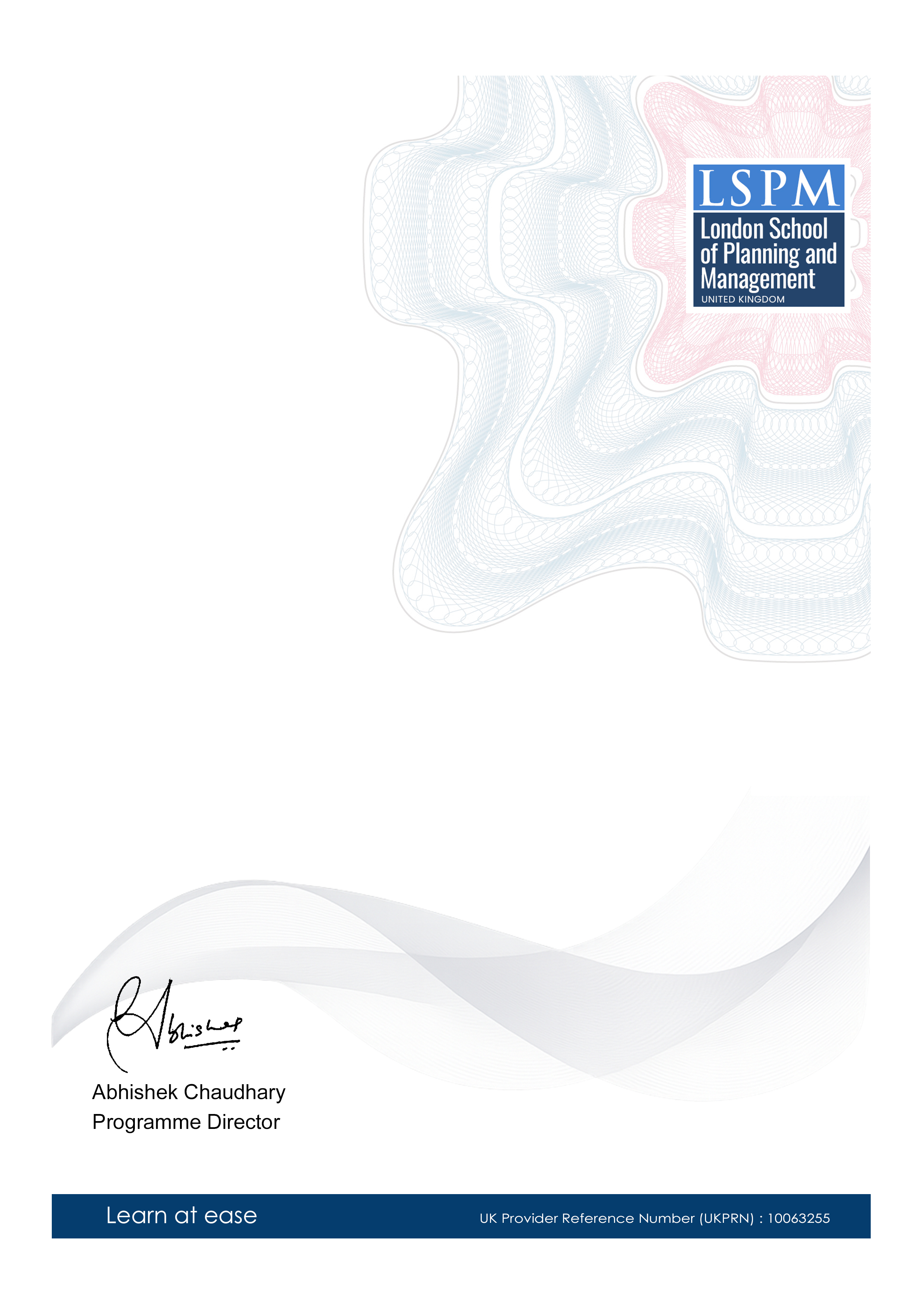Executive Certificate in Water Resource Management for Indigenous Communities
-- viewing nowThe Executive Certificate in Water Resource Management for Indigenous Communities is a crucial course designed to empower learners with the necessary skills to manage water resources in Indigenous communities. This program highlights the importance of water resource management in preserving cultural heritage, ensuring food security, and promoting sustainable development in these communities.
2,970+
Students enrolled
GBP £ 149
GBP £ 215
Save 44% with our special offer
About this course
100% online
Learn from anywhere
Shareable certificate
Add to your LinkedIn profile
2 months to complete
at 2-3 hours a week
Start anytime
No waiting period
Course details
Here are the essential units for an Executive Certificate in Water Resource Management for Indigenous Communities:
• Indigenous Water Rights and Governance: Understanding the legal and political context of water resource management in indigenous communities, and the importance of community-based governance structures.
• Water Resource Assessment and Planning: Techniques for assessing water availability, quality, and demand, and for developing water resource management plans that balance the needs of communities, ecosystems, and industry.
• Water Infrastructure and Technology: An overview of water infrastructure and technology solutions, including dams, reservoirs, pipelines, and treatment plants, and their impact on indigenous communities.
• Water Policy and Advocacy: Strategies for engaging with policymakers and advocating for water resource management policies that recognize and respect indigenous rights and knowledge.
• Water Monitoring and Evaluation: Techniques for monitoring water resources, evaluating the effectiveness of water resource management strategies, and adapting to changing conditions.
• Climate Change and Water Resources: Understanding the impacts of climate change on water resources, and strategies for building resilience in indigenous communities.
• Water and Cultural Heritage: The importance of water in indigenous cultures, and strategies for protecting and preserving cultural heritage in water resource management.
• Water and Community Development: The role of water resource management in community development, including economic development, health, and social well-being.
• Water and Conflict Resolution: Strategies for resolving conflicts over water resources, including negotiation, mediation, and dispute resolution.
• Water and Leadership: Developing leadership skills for effective water resource management in indigenous communities, including communication, collaboration, and decision-making.
Career path
Entry requirements
- Basic understanding of the subject matter
- Proficiency in English language
- Computer and internet access
- Basic computer skills
- Dedication to complete the course
No prior formal qualifications required. Course designed for accessibility.
Course status
This course provides practical knowledge and skills for professional development. It is:
- Not accredited by a recognized body
- Not regulated by an authorized institution
- Complementary to formal qualifications
You'll receive a certificate of completion upon successfully finishing the course.
Why people choose us for their career
Loading reviews...
Frequently Asked Questions
Course fee
- 3-4 hours per week
- Early certificate delivery
- Open enrollment - start anytime
- 2-3 hours per week
- Regular certificate delivery
- Open enrollment - start anytime
- Full course access
- Digital certificate
- Course materials
Get course information
Earn a career certificate

